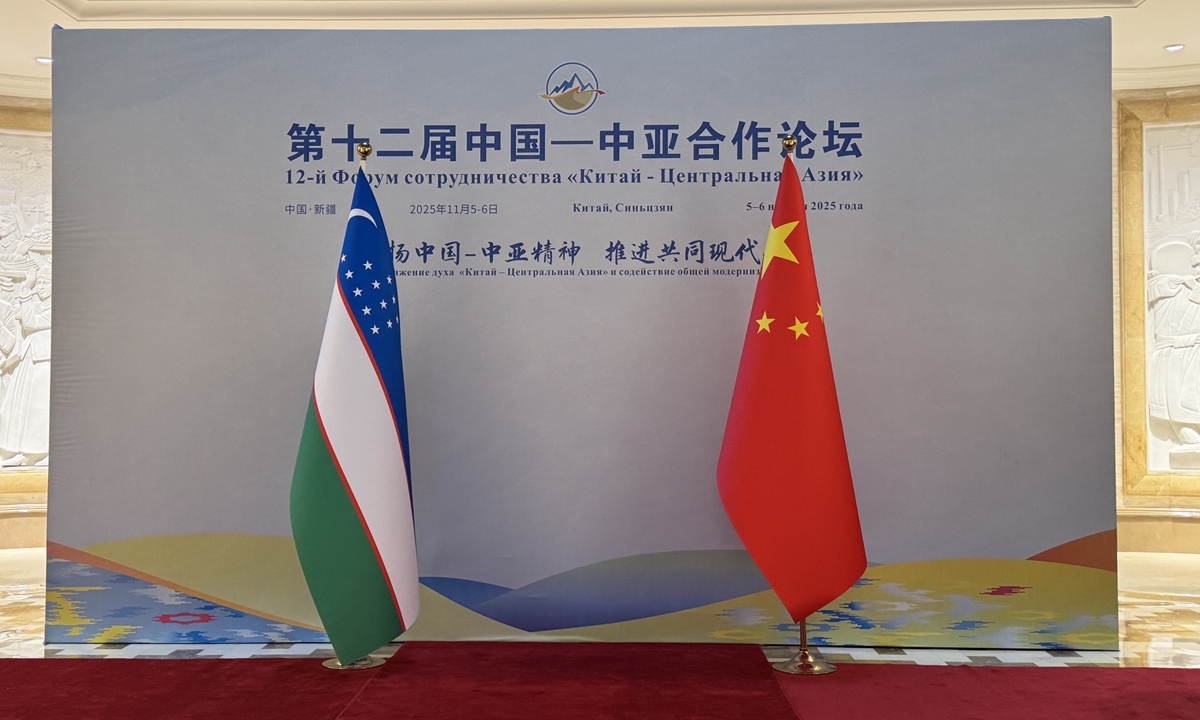The 12th China-Central Asia Cooperation Forum opened in Urumqi on Thursday with strong consensus reached among delegates from China, Kazakhstan, Kyrgyzstan, Tajikistan, Turkmenistan, and Uzbekistan, including a renewed commitment to building a closer China-Central Asia community with a shared future, with a focus on enhancing practical cooperation in trade, green development, security, and regional connectivity.
Shen Yueyue, vice chairperson of the National Committee of the Chinese People’s Political Consultative Conference, also president of the Good-Neighborliness, Friendship and Cooperation Commission of the Shanghai Cooperation Organization, attended the opening ceremony and delivered a keynote speech.
Shen stated that the Fourth Plenary Session of the 20th Central Committee of the Communist Party of China has drawn a blueprint for development in the next five years, which will also bring more development opportunities to Central Asian countries.
An initiative adopted at the forum stated to uphold mutual trust and support, and to practice initiatives including the Global Development Initiative, Global Security Initiative, Global Civilization Initiative, and Global Governance Initiative.
The initiative also stated to optimize pragmatic and efficient cooperation with a focus on trade, investment in industries, connectivity, green minerals, modern agriculture, and people-to-people exchanges.
On building a peaceful and secure environment, the initiative stated to strengthen regional security governance, deepen law enforcement and security cooperation, jointly prevent and combat extremist ideologies, resolutely fight the three forces, namely terrorism, separatism, and extremism, and maintain peace and stability in the region.
Some high-level officials from the Central Asian countries spoke highly of the practical significance of the forum, which was held under the theme of “promoting the China-Central Asia Spirit and advancing common modernization.”
“I believe that the proposals and initiatives presented today will inject new momentum into the cooperation between China and Central Asian countries,” Kyrgyz Deputy Prime Minister Bakyt Torobayev told at the opening ceremony of the forum on Thursday morning.
In recent years, the China-Central Asia cooperation mechanism has become an indispensable part of the regional interaction architecture, Torobayev said, noting that the mechanism has developed into an effective platform for coordinating efforts, discussing current issues, and formulating joint solutions to achieve sustainable development in the region.
This mechanism has proven its practical relevance and its ability to adapt to global and regional changes, reflecting the shared will of our countries to expand cooperation, enhance stability, and ensure sustainable development.
“Today, we can confidently say that the Central Asia-China relationship has reached an unprecedented level, showing not only a quantitative but also a qualitative improvement in all areas. This cooperation, based on mutual benefit and respect, provides a solid foundation for our common prosperity,” Tajikistan’s Deputy Prime Minister Dilrabo Mansouri told at the opening ceremony of the forum.
“The goal is to bring the total trade volume between China and Central Asian countries to $100 billion in the near future,” she said, noting that China has become one of our largest and most reliable investors, supporting key infrastructure projects and facilitating the creation of modern joint production in the region.

A logo sign of the 12th China-Central Asia Cooperation Forum held in Urumqi, Northwest China’s Xinjiang Uygur Autonomous Region, on November 6, 2025. Photo: Chen Qingqing/GTIn a world increasingly fractured by geopolitical tensions and economic headwinds, the deepening cooperation between China and Central Asian nations stands as a key stabilizing force – one that fosters both regional peace and sustainable development, the Xinhua News Agency reported in June.
Anchored in millennia of the ancient Silk Road exchanges and fortified by three decades of contemporary partnership, the China-Central Asia relationship has matured into a new paradigm of international relations – one that is built on mutual respect, synergistic development and strategic trust, per Xinhua.
From the first China-Central Asia summit in Xi’an to the second summit in the Kazakh capital of Astana last year, some scholars from the Central Asian countries observed many positive changes over the past few years in the regional development and cooperation.
Merdan Yazyyev, a research expert of the CAREC Institute who is from Turkmenistan, told the Global Times on Thursday that in recent years, China has been more open to Central Asian countries.
“For example, Kazakhstan and Uzbekistan have implemented mutual visa exemption agreements with China. This means more businesses and tourists will come to China, especially to Xinjiang, and explore new investment opportunities,” he said.
Likewise, Chinese businesses and entrepreneurs will also have the chance to explore more opportunities in these countries, particularly in Kazakhstan. We hope this trend will continue and expand to other Central Asian nations as well, he added.
Kazakhstan has always been a strong supporter of the development of the China-Central Asia partnership, Kazakh Ambassador to China Nuryshev Shakhrat told media on the sidelines of the forum.
“We have consistently supported China’s initiatives to strengthen cooperation. The second China-Central Asia Summit, held in June this year, was an important step in the development of this partnership. The summit adopted the treaty on eternal good-neighborliness, friendship and cooperation, and the President of Kazakhstan has outlined a new long-term strategy for the development of the China-Central Asia partnership,” the Kazakh diplomat said.
Therefore, we believe that this partnership model is in high demand, and everyone is very clear about its significance. The China-Central Asia partnership model offers advantages not only to the countries and neighboring nations involved but also to countries outside Central Asia, he added.
